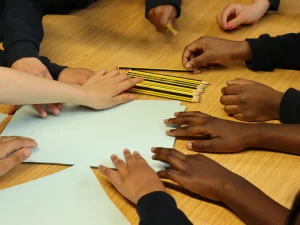The Children’s Commissioner’s Office (CCo) has today launched a new interactive tool for children, young people and their parents and carers that maps GCSE maths data against adult numeracy data for the first time.
Marking National Numeracy Day (May 17), the new tool puts information on adult and child numeracy at families’ fingertips, searchable by their location, demonstrating the interaction between the two and how to improve numeracy.
In collaboration with the charity National Numeracy, the Local Numeracy Data Dashboard allows parents and children to search for their local adult numeracy and maths GCSE data based on their school.
The data from the UK Numeracy Index, published with National Numeracy and Experian, shows that half of the working-age population of the UK have the expected numeracy level of a primary school child, meaning that improving adult numeracy can boost social mobility and have a positive effect on disadvantaged communities, including children.
According to a 2021 report by Pro Bono Economics and KPMG, basic numeracy skills could increase earnings for UK workers by around £1,600 a year.
Next to education, family is often the strongest influence on a child’s outcomes, so where adults demonstrate a positive attitude towards numeracy, children are more likely to develop an interest in this too.
As the Prime Minister Rishi Sunak said last month, setting out details of his plans for young people to study some form of maths up to the age of 18:
“You can’t make movies without maths. You can’t make visual effects without vectors and matrices or design a set without some geometry.
“In healthcare, maths allows you to calculate dosages. In retail, data skills allow you to analyse sales and calculate discounts.
“And the same is true in all our daily lives, from managing household budgets to understanding mobile phone contracts or mortgages.”
Alongside this ambition, the Prime Minister also announced an expert group comprised of mathematicians, education leaders and business representatives to advise government on the core maths content students need to succeed.
The CCo will be supporting this work by hosting a roundtable with subject experts in the coming weeks, exploring not just content but also the barriers facing specific groups of pupils in studying maths, such as those with Special Educational Needs, girls who have never been encouraged to consider STEM (Science, Technology, Engineering, Maths) subjects, or those who have disengaged with their studies.
For this year’s National Numeracy Day, the CCo has also launched an updated version of ‘Where can I go with maths?’, an interactive resource for young people, which helps connect maths to careers, skills and everyday life.
The number of role models from different career backgrounds has been increased, with a new tab added to filter the profiles by what users say their strongest skills are – analytical thinking, communications or resilience – and added downloadable versions of the profiles in pdf form and as image files.
The ‘Where can I go with maths?’ resource aims to support young people by:
- increasing awareness of just how many careers use maths and how it is used in life more generally, sharing a diverse range of roles, some which might not traditionally be thought of as involving maths such as baker, special effects artist, and fashion designer;
- highlighting transferable skills that young people can relate to, and recognise that they might already use or be developing these skills through education, hobbies and interests; and
- showcasing how the content they are learning in school relates to careers and everyday life.
Other resources for National Numeracy Day include The Big Ask Maths Week Challenge, an opportunity for young people in Key Stages 3 and 4 to learn about what young people told the CCo about their wellbeing and future priorities, using real data from The Big Ask, the largest ever survey of children.
Find out on this page: more about the challenge and how young people can take part.






